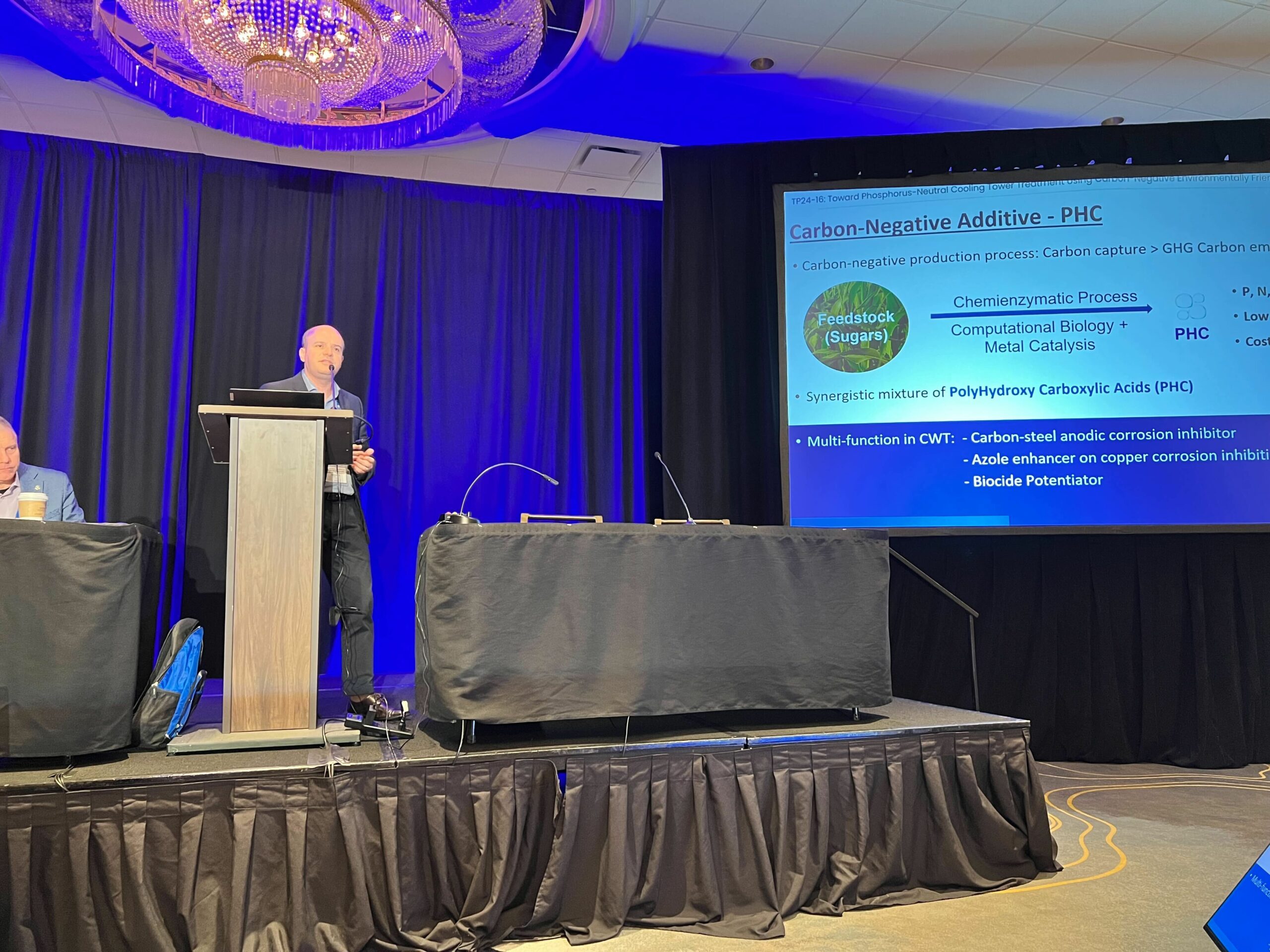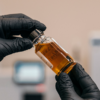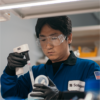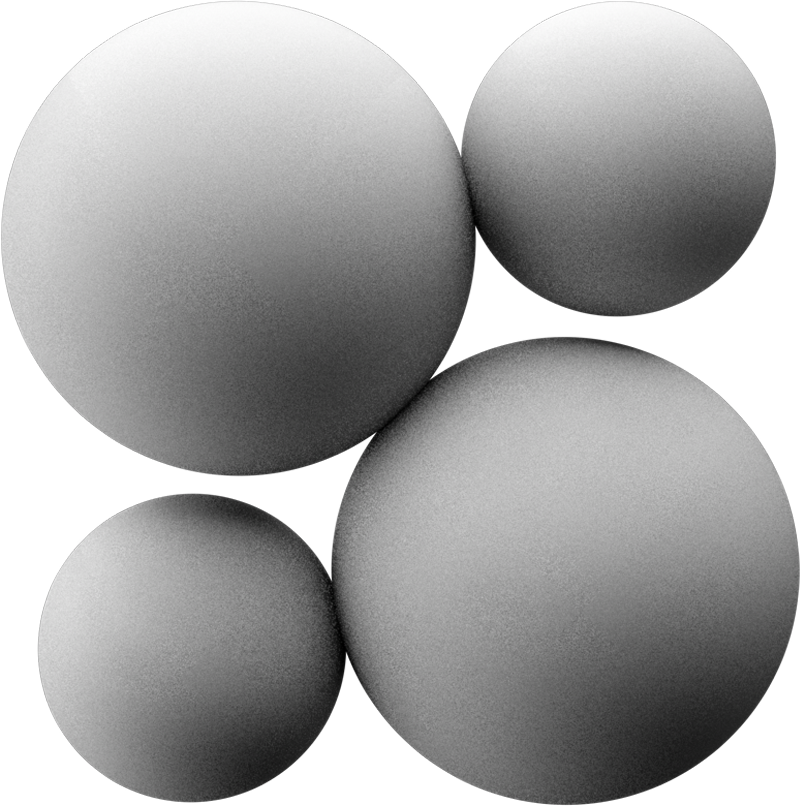Dr. Matheus Paschoalino, Solugen’s Technical Support Manager for Industrial Water Treatment, discussed how our technology can enable more sustainable cooling tower treatments with an audience of experts at the Cooling Technology Institute’s (CTI) 2024 annual conference.
An abridged version of his talk with key takeaways is below:

The Status Quo is Unsustainable
The quest for an optimal balance between performance, cost, and environmental impact in the ever-evolving landscape of cooling water treatments has been ongoing since the demise of chromate inhibitors in the late 1970s. While traditional stabilized phosphate programs are effective, they have significant environmental liabilites due to high inorganic phosphate content which contributes to eutrophication of water supplies. Solugen has developed a breakthroguh solution: an environmentally friendly, polyhydroxylated organic diacid-based technology.
Factors Influencing Stabilized Phosphate Programs
Before exploring Solugen’s innovative solution, it’s crucial to understand the factors currently influencing stabilized phosphate programs. Makeup water composition, operating conditions, and construction materials play pivotal roles. The saturation indices of minerals, for example, including calcium carbonate and calcium phosphate, as well as temperature, pH, and type of metal (e.g. carbon steel, yellow metals) critically influence scale and corrosion tendency. Understanding these components is crucial to formulating effective water treatment programs.
Persistant Challenges in Mitigating Phosphorus
The banning of chromate usage led to the development of stabilized phosphate programs, with Betz Laboratories introducing a successful program in the late 1970s. These programs became industry standard, but their high phosphorus content raised environmental concerns. Efforts to reduce phosphorus content led to the exploration of various alternatives, including metal-containing phosphorus programs, alkaline phosphate programs, and all-organic programs. However, challenges such as environmental liabilities, cost, and limited applicability persisted.
A New Solution?
Solugen’s groundbreaking, synergistic mixture of polyhydroxylated organic diacid has shown promise in reducing or eliminating the addition of phosphorus to cooling systems already operating with typical levels of background phosphate in the makeup water.
Data Supports the Sustainability Outlook of Solugen’s New Diacid
When comparing formulations with and without Solugen’s diacid via benchtop testing, we observed significant improvements in corrosion rates, paving the way for further exploration. Subsequent pilot cooling tower tests, which compared a standard stabilized phosphate program with one incorporating our polyhydroxylated organic diacid, revealed better scale management and lower corrosion rates in the system with diacid at half the concentration of orthophosphate and terpolymer .
Going Forward: Continued Research and Optimization
Solugen’s polyhydroxylated organic diacid presents a promising direction in the journey toward sustainable, cost-effective, and performance-enhancing mild steel corrosion inhibitors for heavy industrial applications. Based on preliminary data, we have compelling reason to believe this diacid can improve carbon steel corrosion in a low phosphorus environment. With further optimization, a cooling system could potentially operate without additional phosphorus, aligning with the concept of a “phosphorus-neutral” program. As we move forward, continued research and optimization will be key to unlocking the full potential of this innovative solution in the realm of cooling water treatments.
For more information about how Solugen’s products can help decarbonize your operations without compromising performance, visit solugen.com/water or reach out to chat with one of our experts directly at waterexpert@solugen.com. To learn more about Solugen’s new diacid, you can reach out to Matheus directly at Matheus.Paschoalino@solugen.com
About Matheus
Matheus Paschoalino is Solugen’s Technical Support Manager for Industrial Water Treatment. He received his PhD in Analytical Chemistry from Unicamp (Brazil) & Complutense University of Madrid (Spain). Dr. Paschoalino has twenty years of experience in R&D and technical support on IWT technologies, focusing on asset integrity and microbial control. He is the author of seven patents, one book chapter, and 30+ papers and presentations from international conferences.







